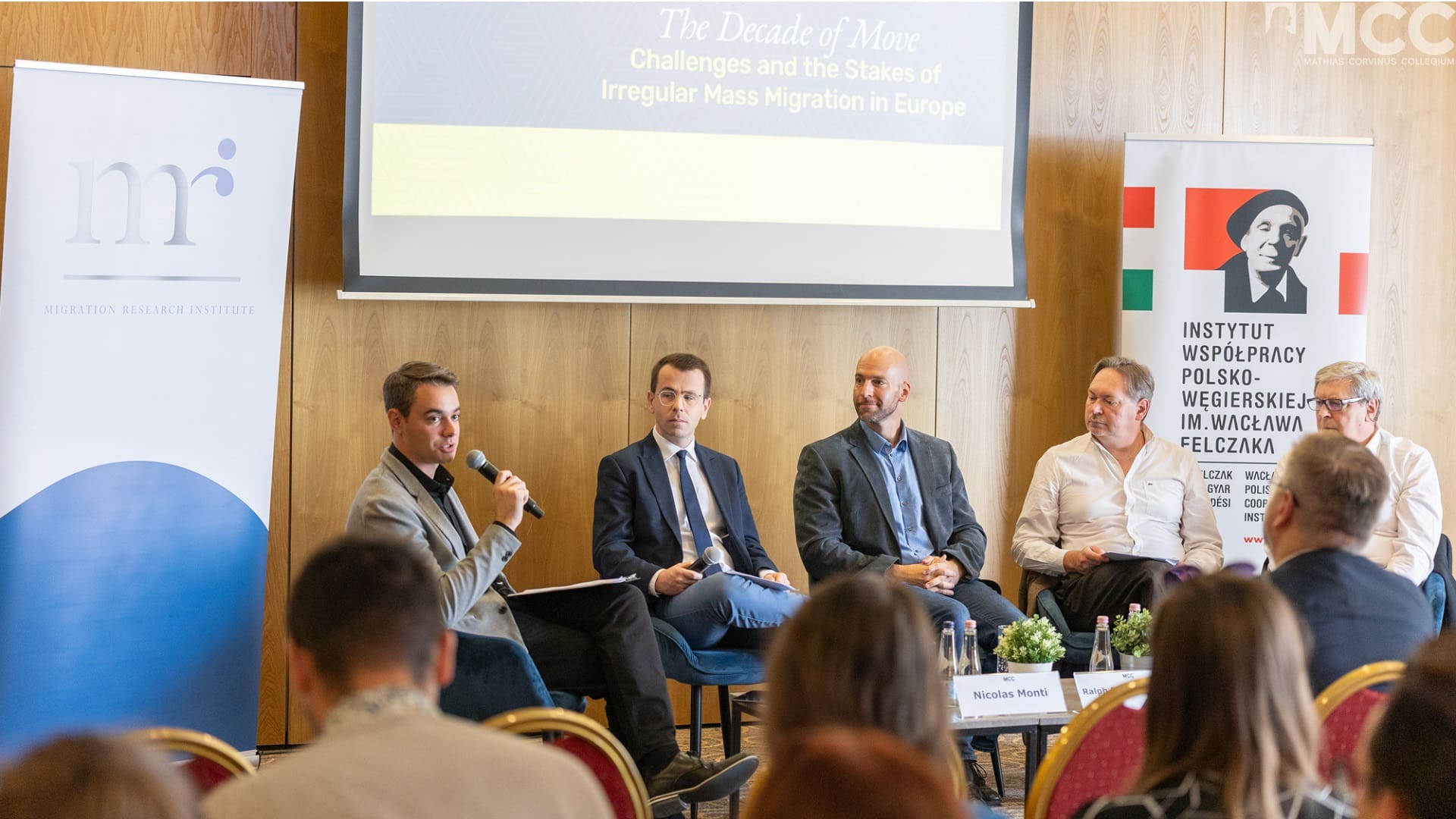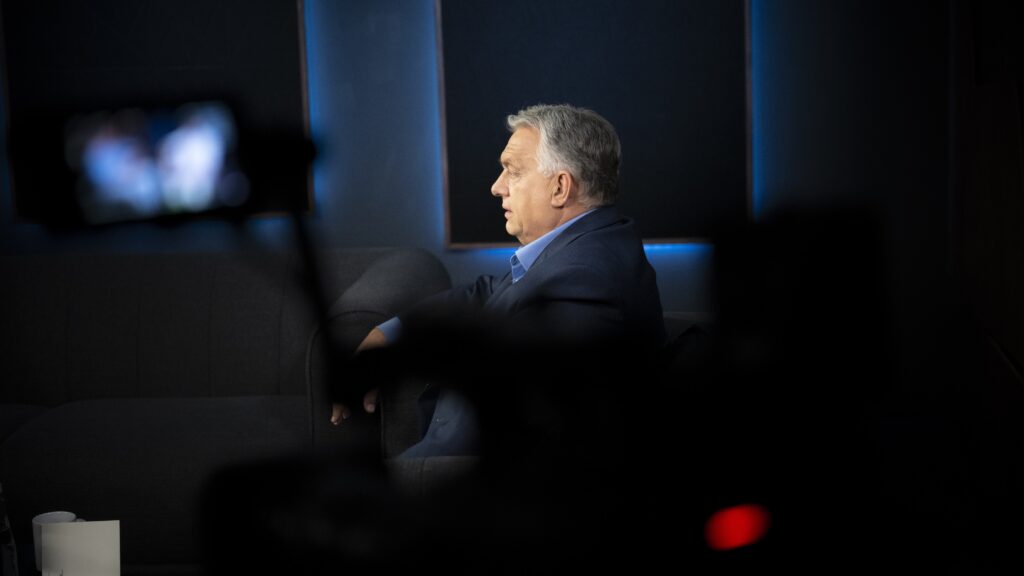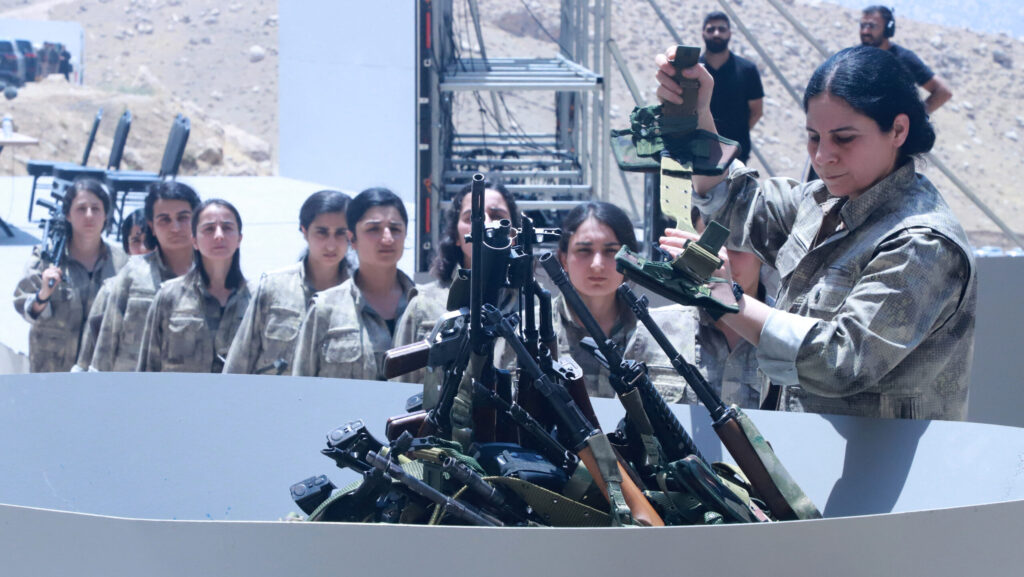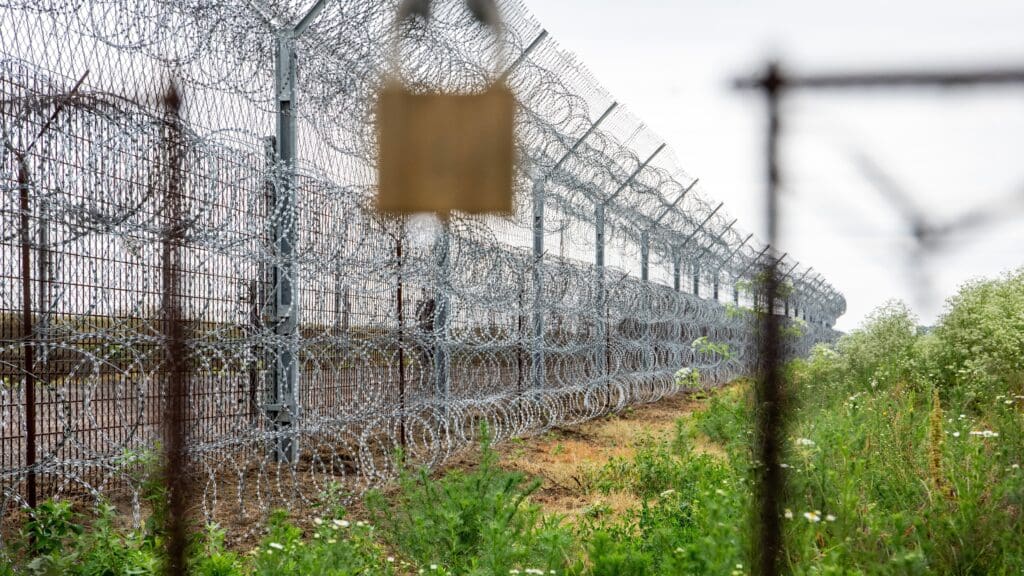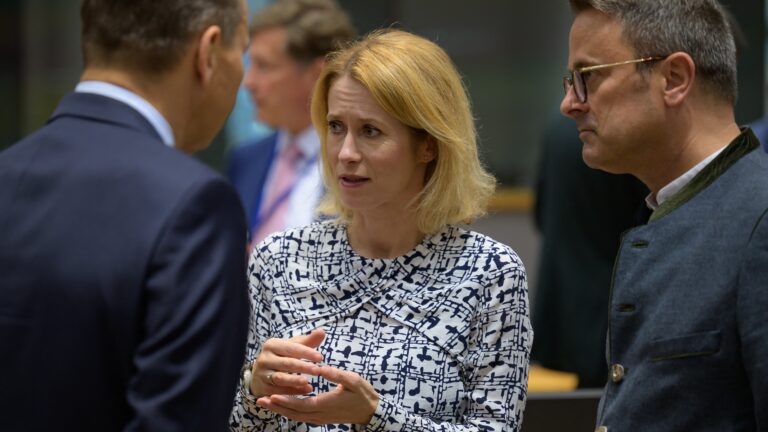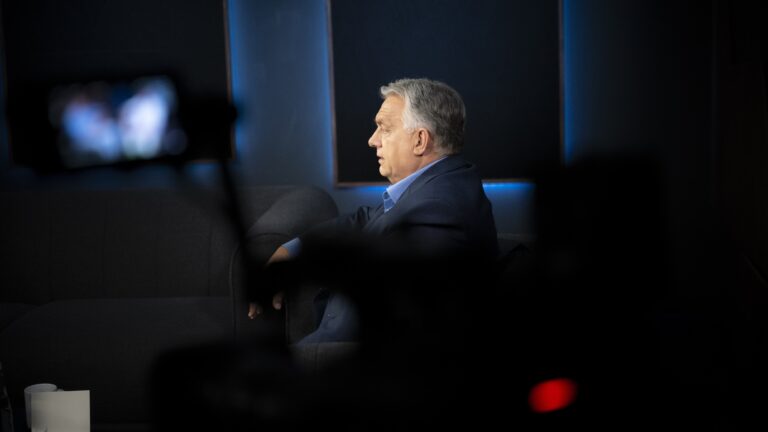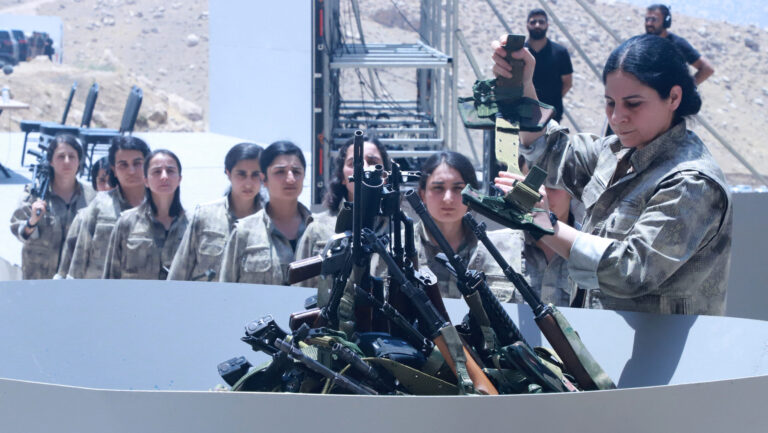On September 28, the Mathias Corvinus Collegium (MCC) hosted an international panel discussion on the pressing subject of irregular migration to Europe. The event titled The Decade of Movement: Challenges and Stakes of Irregular Mass Migration in Europe was a collaborative effort by the Wacław Felczak Institute of Polish-Hungarian Cooperation and the Budapest-based Migration Research Institute (MRI). It showcased migration-focused scholars from across Europe.
Panel topics included the consequences and perspectives of European migration and analyses of this summer’s EU Migration and Asylum Pact.
‘From the practical approach…the idea of the pact is just not realistic,’ said Dr Gyula Mikolicz, the Hungarian government’s Deputy Head of the Asylum Directorate.
It was a fitting time to address this issue. Migrants are pressing toward Europe in numbers unseen since the previous migration crisis just under a decade ago. European policy is playing out from usual migrant hotspots like Lampedusa to obscure ones, like the forests of the Poland-Belarus border.
Even in countries where honest debate on this subject was once tacitly forbidden—like Sweden—migration is now an omnipresent policy issue. Observers can no longer credibly deny the prescience of Jean Raspail’s dystopian novel The Camp of the Saints. The Felczak Institute-MRI panel illustrated the spirit of this new reality.
The event also took place at a politically relevant moment, with Visegrád Group member states Slovakia and Poland at the height of election season.
In Slovakia, which held parliamentary elections on Saturday, 30 September, three-time Prime Minister and the projected winner of the election Robert Fico called for an extraordinary meeting of the National Council of the Slovak Republic to address the migration crisis. By early September, Slovak police had already detained over 27,000 illegal migrants, nearly a tenfold increase from the same period last year. Most are seeking entry to Germany.
Migration routes to Germany have also converged on neighbouring Poland, which recently introduced checks at highway borders with Slovakia. The issue has been arguably even more significant in the Polish election campaign. In addition to selecting the members of parliament, Poles will vote this month on four referendum questions as well, two of which relate to migration, and one which specifically addresses the EU migration pact.
'It is, of course, against the will of voters,' panellist Tomasz Grzegorz Grosse, Professor of Politology, European Studies, and Political Science at Warsaw University said, then adding:
'A majority of Poles reject the relocation mechanism, and without any relation to political preferences. A majority of voters…it is like 70 per cent of Poles, reject such an idea, because Poles believe they are not efficient. They don’t address the problem. They don’t stop [a] huge inflow of migrants to Europe. They only transfer problems from one country to another.'
Internal political forces are also driving migration pressures. Last week witnessed a social media spat between entrepreneur Elon Musk and the German Foreign Office, in which the latter asserted, 'it’s [German NGOs directing migrant boats to shore in Italy] called saving lives'.
GermanForeignOffice on Twitter: "Yes. And it's called saving lives. https://t.co/7eTCbKhG8w / Twitter"
Yes. And it's called saving lives. https://t.co/7eTCbKhG8w
Amid the ongoing Polish election campaign, the pro-opposition network TVN utilized a consular visa scandal to evoke pro-migration sentiment through its reporting from the Polish consulate in Uganda. Celebrated film director Agnieszka Holland released the transparently political Green Border in time for the election. It celebrates the Middle Eastern migrants voluntarily ferried by the Lukashenko regime to the Poland-Belarus border, as well as the NGO activists who facilitate their entry to Poland. As in Raspail’s Camp, the Vatican has assumed a role in these political machinations. It screened Holland’s film despite Polish objections.
Migration Research Institute on Twitter: "On September 28, MRI 🇭🇺and the Waclaw Felczak Institute (@Kurier_Futar) 🇵🇱 held a joint conference at @MCC_Budapest focusing on the #migration trends of the past decade. The experts highlighted the challenges of migration, paying particular attention to its #security concerns. pic.twitter.com/9cUNS2BbML / Twitter"
On September 28, MRI 🇭🇺and the Waclaw Felczak Institute (@Kurier_Futar) 🇵🇱 held a joint conference at @MCC_Budapest focusing on the #migration trends of the past decade. The experts highlighted the challenges of migration, paying particular attention to its #security concerns. pic.twitter.com/9cUNS2BbML
'[Such activist behaviour is] mainly driven by…the media, a political culture, parts of society that are heavily invested in the narrative,' panellist Ralph Schoellhammer, Assistant Professor of Political Science at Webster University in Vienna told the audience at the MCC event. 'This was a phenomenon, I would argue, among urban elites. It [has manifested itself] significantly less…among the rural population, or the majority of the population overall.'
The panel in Budapest offered some bleak assessments that no Brussels politician would be likely to state publicly.
'If hundreds of thousands of people are arriving annually, it’s almost impossible to conduct a prudent and accurate vetting procedure,'
Viktor Marsai, Executive Director of the MRI asserted.
'There are three solutions,' Witold Repetowicz, a Middle East expert at the War Studies University in Warsaw added. '[The] first solution is to pay ransom to these authoritarian regimes. The second is to provide effective protection for [the] border. But it means we act in a brutal way, because there is no other [method to enact this solution]…Europe is not psychologically prepared for such a solution,' he continued. 'The third solution is to surrender.'
Near-term political developments will shape Europe’s migratory and demographic fates. History suggests Repetowicz’s third solution will be the default one to prevail across much of the continent.
A full recording of “The Decade of Movement: Challenges and Stakes of Irregular Mass Migration in Europe” is available here.
Related articles:

